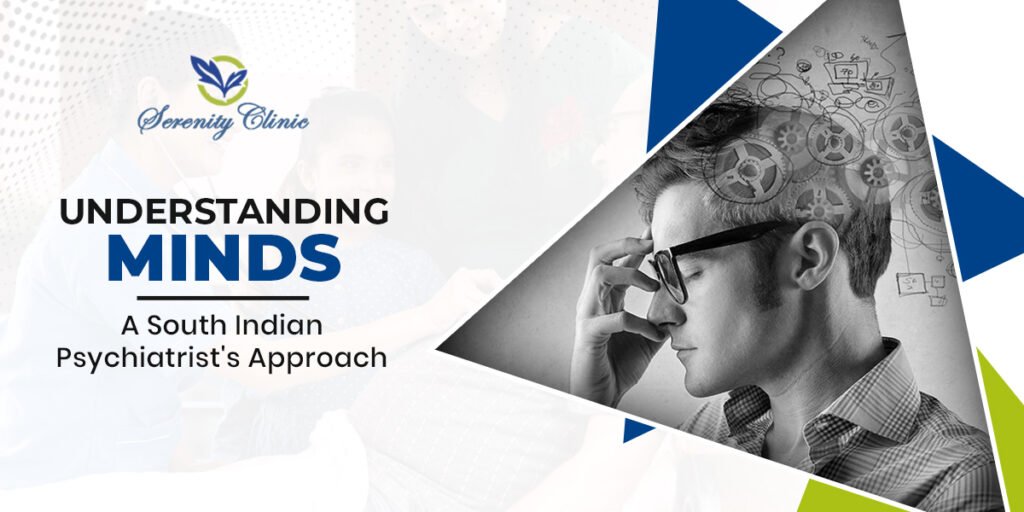A psychiatrist is a medical doctor who specializes in the diagnosis, treatment, and prevention of mental illnesses and emotional disorders. Here’s how a South Indian psychiatrist can help you.
What is a Psychiatrist?
A South Indian psychiatrist is a medical doctor specializing in the field of psychiatry, which involves the diagnosis, treatment, and prevention of mental illnesses and emotional disorders. These highly trained professionals employ a combination of medical, psychological, and therapeutic approaches to understand and address a wide range of mental health conditions.
Psychiatrists have the authority to prescribe medications, and they often play a crucial role in medication management for individuals with mental health disorders. Additionally, some psychiatrists provide psychotherapy or counselling to help individuals navigate and cope with their mental health challenges.
How Can A South Psychiatrist Help You?
A South Indian psychiatrist can provide invaluable assistance by offering comprehensive mental health care. Through thorough assessments, psychiatrists diagnose and treat various mental health conditions, ranging from anxiety and depression to more severe disorders such as schizophrenia. They have the expertise to prescribe and manage medications, helping alleviate symptoms and improve overall well-being.
Many psychiatrists also offer psychotherapy, guiding individuals through therapeutic conversations to explore and address underlying issues. Additionally, psychiatrists play a crucial role in crisis intervention, offering immediate support during emergencies.
Their collaborative approach often involves working with other healthcare professionals to create personalized treatment plans that may include therapy, medication, and lifestyle adjustments, contributing to the overall mental health and resilience of their patients.
What Methods Do Psychiatrist Use?
Psychiatrists employ a diverse range of methods to address mental health issues. One primary approach involves diagnostic evaluations through interviews, observations, and sometimes psychological assessments to understand the nature and severity of a patient’s condition. Medication management is a common method, where psychiatrists prescribe and monitor the effects of medications to alleviate symptoms.
Many psychiatrists also provide psychotherapy, using various therapeutic modalities like cognitive-behavioural therapy (CBT) or psychodynamic therapy to explore and address psychological challenges. Crisis intervention is another critical method, offering immediate support during acute mental health emergencies.
Additionally, psychiatrists may collaborate with other mental health professionals, ensuring a holistic treatment plan that may encompass lifestyle changes, counselling, and medication. The combination of these methods allows psychiatrists to offer comprehensive and individualized care to promote mental health and well-being.
What are the benefits of seeing a psychiatrist?
Seeing a South Indian psychiatrist can offer numerous benefits for individuals facing mental health challenges. Firstly, psychiatrists are medical doctors trained to diagnose and treat a wide range of mental health conditions, providing an accurate understanding of the issues at hand.
They have the expertise to prescribe and manage medications, offering effective pharmacological interventions to alleviate symptoms. Additionally, many psychiatrists offer psychotherapy, providing a safe and supportive space to explore and address underlying emotional and behavioural patterns.
The collaborative nature of psychiatric care ensures that individuals receive personalized treatment plans that may involve a combination of therapy, medication, and lifestyle adjustments. Psychiatrists can also play a vital role in crisis intervention, offering immediate assistance during mental health emergencies. Overall, seeking the help of a psychiatrist can contribute to improved mental health, enhanced coping skills, and a better quality of life.








